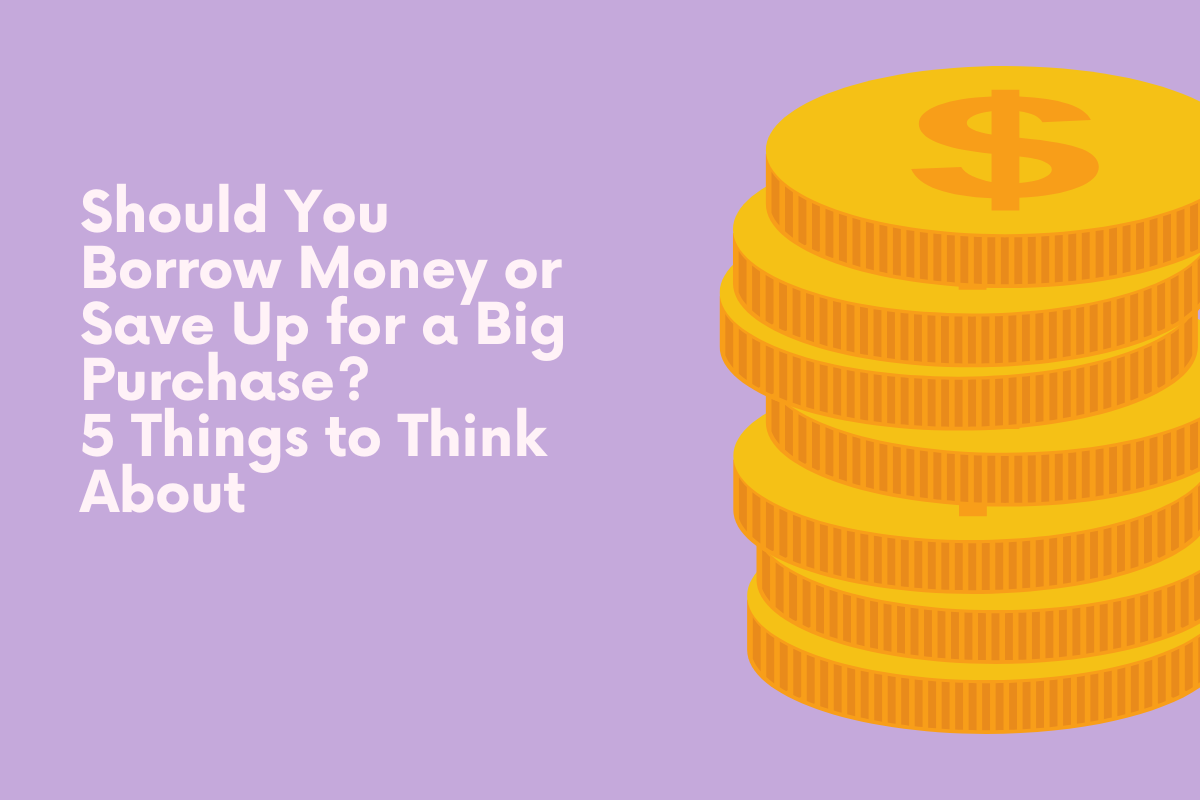After weeks or months of thinking it over, you’ve finally decided to bite the bullet and commit to a big purchase. This could be a car, tuition for a postgraduate course, a modern appliance, a new phone—anything that costs a significant amount of money. The only question that’s left is, should you build your savings first and pay it in one go, or borrow money and pay for it in installments? There are pros and cons to both, and it all heavily depends on what you’re purchasing and your own financial situation. Here are five things to think about before deciding to pay now or later.
Want or Need
Is what you’re planning to buy considered a necessity for yourself and your future? How urgently do you need to make this purchase? Do you need to commit to it as soon as possible, or can you afford to wait?
To answer this, you’ll need to assess the item, your personal circumstances, and why you want to buy it. For example, if you’re thinking of getting a new vehicle, think about how often you’ll need it in your day-to-day life. If a car cuts down your daily commute from 2 hours to 30 minutes, then it may be a good investment that you can take out a car loan for. However, if you’ll only be using that car during the weekends, it may be wiser to save up for a larger amount and purchase it later on instead.
Budget Limitations
Paying later involves having to borrow money elsewhere first, either by using a credit card or taking out a loan. That said, loans and credit card bills need to be paid every month, so it’s a good idea to take a look at your current budget first before committing. How much will the monthly payment be? How long is the installment plan, and can you customize it to fit your budget? For example, a 6-month installment plan wraps up quicker but requires heavier payments. A 12- or 24-month installment plan is a longer commitment, but has a smaller impact on your regular bills. On the other hand, if you’re already struggling with your monthly expenses, then it might be better for you to save up and pay for your intended purchase in one go.
Cash Discounts Versus Installment Payments
This is one of the most notable things to consider when deciding to pay now or later. Merchants often offer you a discount if you’re able to pay for your purchase in straight cash and can sometimes be persuaded into selling the item at an even lower price. On the other hand, if you choose to pay later, you won’t get as big or as many discounts. Instead, you will have to pay the full price, which is staggered into smaller monthly payments.
This leaves the question; should you let your savings take a hit and get a good discount for your purchase, or should you bear the full price (and, in some cases, additional interest) and pay for it little by little every month? Both options have distinct benefits; it’s a matter of thinking which one is more advantageous for your situation.
Credit Score
The state of your credit score can also dictate when you should pay. If you have a credit card, you can use this purchase to improve your credit score further and enjoy easier loan approvals, better negotiating power, and a handful of other benefits in the future. As long as you’re confident that you can pay your bill on time, putting the purchase on your credit card could be the better choice.
However, if your credit score is poor and you aren’t sure if you can pay the bill every month, it’s best not to borrow any money and save up for the purchase instead. Remember that late payment fees and interest rates can stack up quickly, and one wrong move could lead you down an ever-growing debt that you’ll have to pay.
Emergency Funds and Other Financial Goals
Think about your other financial goals that you are currently working towards. If you’re going to pay for your purchase in full using your savings, then you may be taking a huge step backwards from that goal. On the other hand, borrowing money and paying it back in installments will also slow down your pace in a different way.
Is buying something worth slowing down building your emergency fund or retirement savings? There are undoubtedly some things that you need now, even if that means taking out funds that you’ve put aside. So, think about how this purchase will affect your financial future before making any decisions.
In the end, there is no right or wrong answer between borrowing money or saving up for your next big purchase. It depends entirely on your financial situation, which can differ from person to person. It’s important to practice thoughtful financial planning so that you can make the best choice and reduce your financial stress in the future.





.png)